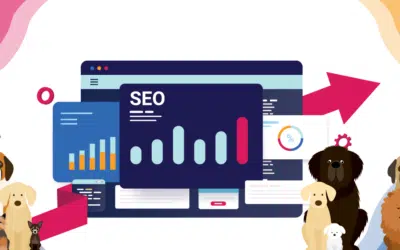In today’s digital era, it is widely acknowledged that having a website is imperative for businesses and obviously if you’re here, you at least understand that. However, simply having a website might not suffice. Enter the blog – a secret weapon for your online presence. A blog possesses the power to enhance your website’s traffic, establish your authority in the industry, and drive more leads and conversions. By implementing a well-managed content calendar, you can consistently deliver valuable information to your audience, keeping them engaged and coming back for more. The possibilities for blog posts are endless. You can share industry insights, offer helpful tips and tutorials, showcase your products or services, or even feature guest bloggers who bring fresh perspectives to the table. Incorporating guest blogging into your strategy not only diversifies your content but also taps into new audiences and networks, resulting in exposure and credibility for both you and your guest bloggers. If you haven’t done so already, it’s time to give your website the boost it deserves with a blog. Start reaping the benefits and watch your online presence soar to new heights.
The Benefits of Having a Blog

Source: (HubSpot)
First things first – let’s talk about the benefits of having a blog on your website. For starters, a blog can help drive more traffic to your site. When you publish fresh and engaging content regularly, search engines take notice and may improve your website’s ranking in search results. Additionally, having a blog can offer multiple touch points for your audience to connect with you and your brand. Perhaps most importantly, having a blog can establish your authority in your industry. By sharing insights and expertise related to your products or services, you can position yourself as a thought leader. Not only does this foster trust with your target audience, but it also draws in potential customers who are actively seeking a reputable business in your industry.
How A Blog Helps You Win Search Engine Optimization
As mentioned above, driving traffic to your website is one of the best benefits of having a blog. Blogs are separate from your regular pages on your website. They give you an opportunity to branch out. Your regular pages will discuss what your business does. What type of clients you serve, the products and services you offer and how you can generally help potential customers. But that’s somewhat limiting. Unless someone is actively looking for you products and services they will generally not come across your website. Whether they are doing initial research or actively ready to reach out, you still will only capture a limited segment of your target market. Where a blog helps is that it allows you to win other types of searches, searches not related to finding a company, products or services.
Let’s say for example your nurse staffing company needs more potential nurses to fill available positions. While your website can explain the benefits of working with your organization, your company culture, or employee perks, your blog can talk about important topics nurses or potential nurses may be interested in. “What are the best states for travel nursing?” “How much can a travel nurse earn?” “What type of degree does a travel nurse need?” Winning searches like this brings important benefits to you website. It tells Google you have important information, so it in turns makes your other pages more visible. It’s brand exposure for your website, so that when a travel nurse is later looking for an agency they may remember your company. Your blog can also funnel readers to other pages, contact forms and email list sign ups.
Content Calendar Management
One of the biggest challenges of maintaining a blog is creating consistent, quality content. We’ve all seen websites that write a few blogs out of the gate but then haven’t updated the blog for several months or even years. A content calendar proves invaluable in situations like these. A content calendar serves as a valuable tool to strategically plan and schedule the topics you will write about and their corresponding publication dates. Not only does this keep you organized, but it can also prevent writer’s block and ensure you’re covering a variety of topics that appeal to your audience. When developing a content calendar, take into account the following factors:
- What topics are prevalent in your industry?
- What are your customers interested in?
- Are there any upcoming events or holidays you can tie your content to?
- What type of content would engage your readers?
By responding to these inquiries, you can craft a valuable content calendar that ensures each post is well-considered and meaningful. Additionally, if possible, try to plan ahead and write several blog posts at once. This helps make sure you don’t run out of ideas during slow periods.
6 Types of Posts To Think About

There are various types of content that can engage your audience and provide value in your industry.
How-to articles allow you to teach your audience how to do something related to your industry, providing actionable steps and guidance.
Listicles are popular among readers as they are easy to skim and present information in a digestible format.
Sharing case studies is an effective way to showcase success stories of how your products or services have helped customers, building trust and credibility.
Consistently updating your audience with industry news and trends showcases your dedication to staying up-to-date and informed. This not only demonstrates your commitment but also enhances your credibility and authority in your field. Establishing yourself as a thought leader by sharing your expertise and opinions on relevant topics can position you as a trusted authority.
Lastly, giving customers a behind-the-scenes look at new products or services you’re launching through product updates can create excitement and anticipation. It’s also important to consider the format of your blog post. For instance, if you’re writing a how-to article, would it be more effective as a written post or an instructional video? Creating compelling content for your blog can be overwhelming, but with careful planning and research, you can develop content that resonates with your readers. Remember that consistency is key – by regularly posting quality content, your audience will come to expect it from you. Over time, this fosters the development of trust and loyalty.
Tips for Starting a Blog
Now that you know the advantages of having a blog, it’s time to get started. But where do you begin? Here are some tips for launching your blog and creating engaging content:
- Start with a plan. Before you dive into writing, determine what topics your blog will cover and how often you will post.
- Keep your topics focused on your core offerings. To make sure that each blog post is relevant to your target audience, make sure that it ties back to the products or services provided by your business.
- Consider incorporating guest blogging opportunities. Inviting other professionals in your industry to write a blog for you can help add more diversity to your content, expand the reach of your blog, and provide a fresh perspective.
- Monitor analytics. Keeping track of how often people are visiting your blog and clicking on links can help you analyze what types of content resonate with your audience so that you can create more tailored content in the future.
In the end, maintaining a blog enables you to cultivate connections with your intended audience and position yourself as an expert in your field. With some planning and dedication, you can make it a successful part of your marketing strategy.
How to Get Started With Guest Blogging
Getting started with guest blogging does not have to be complicated. Below is a straightforward guide to help you seamlessly incorporate additional guest bloggers onto your website:
- Research other blog writers in your industry. Start by doing some research to find respected professionals that you would like to collaborate with.
- Reach out and make connections. Once you have identified a list of potential guest bloggers, reach out to them directly and explain why you think they would be a great addition to your blog.
- Set up an agreement. Before you allow a guest blogger to submit content to your website, make sure that you have a clear understanding of the terms and conditions associated with their posts.
- Monitor and evaluate the results. Once you have added some guest bloggers to your website, track how well their posts are performing in relation to your own content and adjust as needed.
By inviting guest bloggers to contribute content to your website, you can add a unique perspective and create more engagement with your blog. Working with industry professionals can also help you build relationships that could be beneficial for both parties in the long run. So don’t be afraid to reach out and connect with other professionals in your industry to explore collaboration opportunities.
Benefits of Guest Blogging
Guest blogging can be a great way to add more value and engagement to your website, but it does come with some key benefits:
- Increased exposure. By inviting guest bloggers to contribute content to your website, you provide them with an excellent opportunity to promote their work. Additionally, this practice introduces new readers and potential customers to your valuable content.
- Variety of perspectives. Every guest blogger brings a unique perspective and experience to the table, which can help you create more engaging content that resonates with different audiences.
- Expert advice. Inviting industry professionals to contribute content to your website provides readers with expert advice on topics related to your niche that they may not be able to find elsewhere.
- Networking opportunities. Working with guest bloggers can help you build relationships with industry professionals, which could be beneficial for both parties in the long run.
Utilize the incredible potential of guest blogging to elevate engagement and expand your audience. Seize every opportunity to tap into this powerful tool and unlock its benefits. With a bit of hard work and strategic planning, you can use guest blogging to create valuable content that resonates with your readers.
Creating an Effective Guest Blogging Strategy
Creating a successful guest blogging strategy starts with understanding who you’re trying to reach and what kind of content resonates with them. Researching your target audience will help you identify relevant topics that they could benefit from a fresh perspective or expert advice. After identifying the topics, you can begin searching for guest bloggers who can offer distinctive insights and perspectives.
It’s also important to think about the types of content you want to create for your website. Guest blog posts should be well-written, engaging, and relevant to your audience, so it’s a good idea to have guidelines in place that will ensure high-quality pieces. Additionally, it’s worth considering whether video or audio content could be included in your guest blogging strategy.
Ultimately, establishing clear goals and objectives will enable you to effectively measure the success of your endeavors in guest blogging. Consider setting measurable goals for engagement and reach, as well as tracking how many people have visited your website as a result of a guest blog post. The insights derived from this data are invaluable, shedding light on both the strengths and areas in need of improvement.
Guest blogging is an effective way of increasing engagement, reach, and brand awareness, so make sure that you leverage this strategy when possible. By devising a meticulously crafted plan, you can curate content that holds immense value and proves beneficial to your audience.
Leveraging Social Media for Maximum Impact
For maximum impact, it’s important to leverage social media when sharing your blog posts. This gives you the opportunity to connect with potential readers who may not have come across your content otherwise. Platforms like Twitter, LinkedIn, and Facebook are great for promoting new blog posts as they provide an easy way to share information with a wide range of audiences.
In addition, it is advisable to explore alternative approaches to promote your website’s blog posts, including email newsletters and influencer marketing. These strategies offer additional opportunities to connect with potential readers who may not have discovered your content yet. Utilizing different social media platforms enables you to actively connect with your intended audience, amplify user engagement, and boost conversions for your blog.
Blogging Makes Email Marketing A Breeze
An additional benefit of having a blog is that it can really help propel your email marketing to better engage with your contacts. Do you stress trying to come up with content for your email newsletter? Has it been several months since you’ve reached out to contacts in your database? A blog takes care of the burden of creating email content, killing another bird with the blogging stone. If your content calendar calls for four posts a month, you can easily send out an exciting email at the end of the month linking back to these posts. These types of emails are easy to read, can be forwarded to others, and don’t take long to create.
You can even use these emails to set up marketing automations reaching out to new contacts or reengaging old contacts. In conjunction with a CRM system, you can create a series of emails to quickly reach out to form fills, or current contacts based on defined parameters. With your informative blog posts as the meat of the emails, you’ll tell your contacts you are a great sources of industry information.
Expert Guidance and Support for Content Creation
Conway Marketing Group is your go-to partner for all things blogging, guest blogging, and social media. Our team offers comprehensive guidance and unwavering support to help you establish your expertise in your industry. We specialize in driving increased traffic to your website and facilitating meaningful connections with your audience across multiple touchpoints. With our assistance, you can create a content calendar for consistent and quality content, explore different types of posts, and leverage guest blogging to diversify your content. Let us help you enhance your online presence and take your blog to the next level. Reach out to Conway Marketing Group today for unparalleled expertise and support. Click here to schedule your free consultation.



